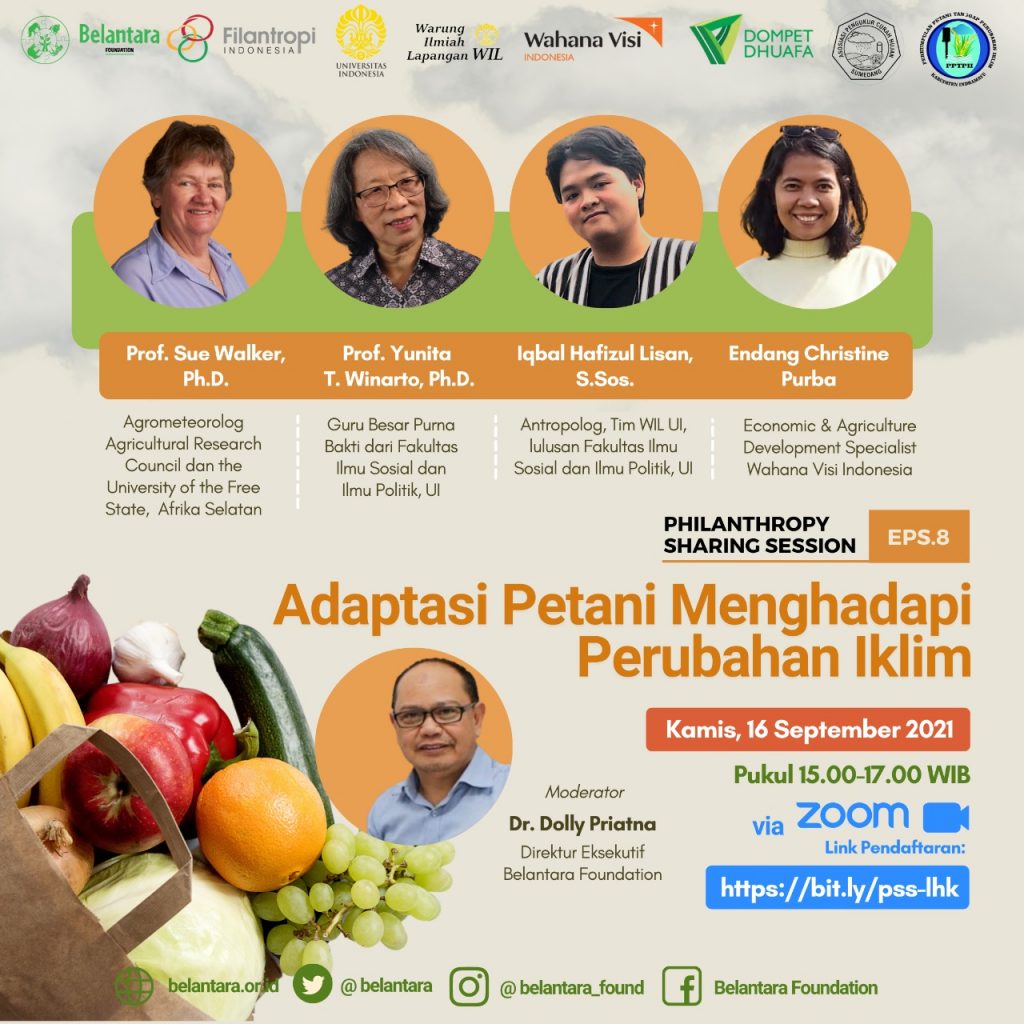
- This event has passed.
Philanthropy Sharing Session – Farmers Adaptation to Climate Change
September 16, 2021 @ 3:00 pm – 5:00 pm
The latest data from the United Nations said that the number of hunger is increasing due to climate change and natural disasters, effecting for people difficult to access an adequate food sources. Hunger rates increased by 11% after 15 years ago. Extreme weather events have also prompted many people to leave their homes. This is what causes hunger rates to increase and the situation get worse when global temperatures increasing. The World Food Program (WFP) warns that climate change on Earth will have a negative impact on the agricultural sector. The effects of climate change on the agricultural sector are multi-dimensional, ranging from resources, agricultural infrastructure, and agricultural production systems, also aspects of food security and self-sufficiency, as well as the welfare of farmers and society in general.
It is necessary to provide climate services to farmers so they can improve their ability to anticipate increasingly unpredictable climatic conditions. One effort that can be done is to make farmers ‘self-researchers’ on their own land, allowing them to modify conventional crop cultivation strategies to be more responsive to the risks of climate change. It been done by the University of Indonesia Scientific Field Shops (WIL). They are society of the agrometeorology that was developed through a cross-disciplinary approach between agrometeorologists and anthropologists, building transdisciplinary collaborations with farmers and relevant government officials.
Take your seat in Philanthropy Sharing Session: “Farmers Adaptation to Climate Change“!
Speakers:
- Prof. Sue Walker Ph.D. – Agrometeorolog Agricultural Research Council and the University of the Free State, South Africa
- Prof. Yunita T. Winarto, Ph.D. – Full-time Lecturer from Faculty of Social and Political Science, Universitas of Indonesia
- Iqbal Hafizul Lisan, S.Sos – Antropolog, WIL UI Team, post-graduate from Faculty of Social and Political Sciences, Universitas of Indonesia
- Endang Christine Purba – Economic & Agriculture Development Specialist of Wahana Visi Indonesia
- Perkumpulan Petani Tanggap Perubahan Iklim (PPTPI)



